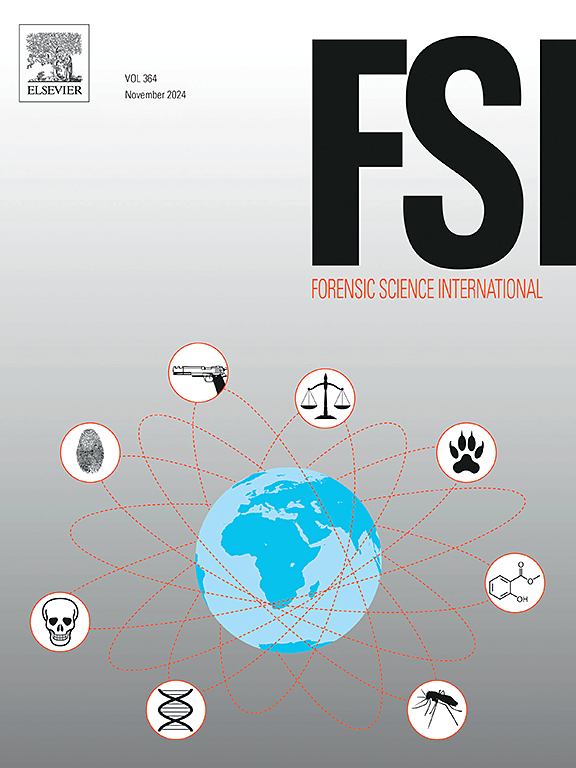Individual application patterns of Cannabis-based Medicines in Germany – Descriptive evaluation of a patient survey and discussion from a forensic perspective
IF 2.2
3区 医学
Q1 MEDICINE, LEGAL
引用次数: 0
Abstract
Background
An increasing number of countries have legalised cannabis for medicinal purposes in recent years leading to tensions with other regulatory frameworks. Some countries grant a medical defence according to their drug driving legislations. This may lead to specific medico-legal assessments relating to the participation of cannabis patients in road traffic. In Germany, these enquiries for expert opinions are opposed by incomplete statistics on medicinal cannabis patients, which limits the assessment of individual cases.
Methods
A cross-sectional, anonymous patient survey was carried out nationwide in the first quarter of 2022 using an online questionnaire. The overall collective (n = 1030) was analysed with regard to application patterns of cannabis-based medicines. In particular, a detailed evaluation of the cannabis flower sub-collective was carried out.
Results
Taking into account patients with health insurance prescription and, for the first time, self-payers, a high proportion of cannabis flower patients was observed (89.9 %). On average, the intake of cannabis flowers is associated with substantially higher daily THC doses (336 mg) compared to the usage of other cannabis-based medicines (≤ 17 mg). In addition, 16.2 % of patients reported complex usage patterns consisting of combinations of different types of cannabis-based medicines. Over a quarter (28.4 %) of respondents stated a smoking intake of cannabis flowers which is not recommended from a medicinal point of view.
Conclusions
Descriptive information on individual application patterns of cannabis-based medicines provide a valuable source of information for medico-legal expert statements as well as a basis for further research projects.
德国大麻药物的个体应用模式-从法医角度对患者调查和讨论的描述性评估。
背景:近年来,越来越多的国家将药用大麻合法化,导致与其他监管框架关系紧张。一些国家根据其药物驾驶法律给予医疗辩护。这可能导致对大麻患者参与道路交通进行具体的医学-法律评估。在德国,这些征求专家意见的调查受到对医用大麻患者的不完全统计的反对,这限制了对个别病例的评估。方法:于2022年第一季度在全国范围内使用在线问卷进行横断面匿名患者调查。对总体集体(n = 1030)进行了大麻类药物应用模式的分析。特别是,对大麻花亚群进行了详细的评价。结果:考虑到有医疗保险处方的患者和首次自付的患者,大麻花患者的比例很高(89.9% %)。平均而言,与使用其他基于大麻的药物(≤17 毫克)相比,大麻花的摄入量与每日四氢大麻酚剂量(336 毫克)相关。此外,16.2% %的患者报告了复杂的使用模式,包括不同类型的大麻药物的组合。超过四分之一(28.4 %)的答复者表示,从医学角度来看,不建议吸食大麻花。结论:关于以大麻为基础的药物的个别应用模式的描述性信息为法医专家陈述提供了宝贵的信息来源,并为进一步的研究项目提供了基础。
本文章由计算机程序翻译,如有差异,请以英文原文为准。
求助全文
约1分钟内获得全文
求助全文
来源期刊

Forensic science international
医学-医学:法
CiteScore
5.00
自引率
9.10%
发文量
285
审稿时长
49 days
期刊介绍:
Forensic Science International is the flagship journal in the prestigious Forensic Science International family, publishing the most innovative, cutting-edge, and influential contributions across the forensic sciences. Fields include: forensic pathology and histochemistry, chemistry, biochemistry and toxicology, biology, serology, odontology, psychiatry, anthropology, digital forensics, the physical sciences, firearms, and document examination, as well as investigations of value to public health in its broadest sense, and the important marginal area where science and medicine interact with the law.
The journal publishes:
Case Reports
Commentaries
Letters to the Editor
Original Research Papers (Regular Papers)
Rapid Communications
Review Articles
Technical Notes.
 求助内容:
求助内容: 应助结果提醒方式:
应助结果提醒方式:


